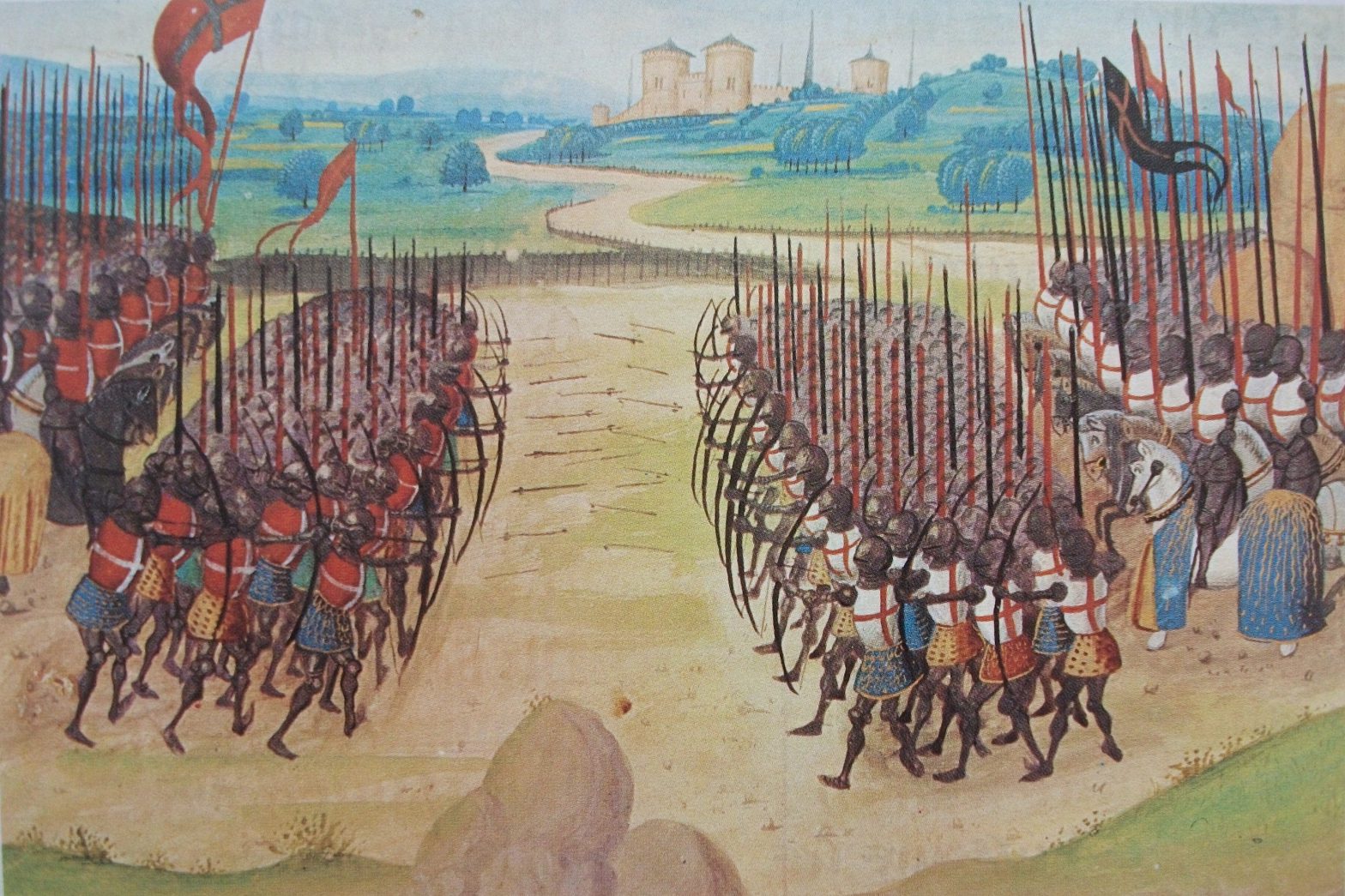On this day in 1415, Henry V of England and his small army defeated a much larger French cavalry army at Agincourt.
Henry was trying to establish his claim to the French throne, part of the Hundred Years’ War (1337-1453) between England and France for control of the Aquitaine and Normandy, provinces in France to which the English laid claim through Henry II and Eleanor of Aquitaine. Henry’s campaign in France had taken Harfleur and held Calais, but disease had diminished Henry’s troops. He was retreating to Calais when the French army caught up with him at Agincourt.
Contemporary reports perhaps exaggerated the numbers, but modern historians estimate the English forces had about 6000-8000 men, mostly archers, while the French had perhaps as many as four times that, 10 000 foot soldiers and calvary, plus about 4000 archers, and perhaps as many as 10000 “fighting servants” attached to the nobility and cavalry.
The weather, the terrain, and the battle tactics of the two groups favored the English forces: perhaps 600 of the 6000 English were killed, but the French lost as many as 6000 men killed and 2000 captured — mostly nobility.
Bereft of his leaders and fighting men, Charles VI made peace with Henry, and gave his daughter Catherine in marriage to the English king.
While the peace was short-lived, and the gains the English made eventually lost to France entirely, Agincourt remains in English memory as an outstanding victory, an example of valor and perseverance in the face of overwhelming odds. The memory is perhaps aided by William Shakespeare’s magnificent St. Crispin’s Day speech, where Henry responds to a soldier’s wish for more troops to meet the French.
Here we see the hero’s quest for eternal fame — the same desire for kleos that Achilles shows in the Iliad, and Roland in his rearguard actions at Roncevaux:
This story shall the good man teach his son;
And Crispin Crispian shall ne’er go by,
From this day to the ending of the world,
But we in it shall be remember’d;
Henry V, Act IV, Scene III
And…in fact, Henry’s words have become true: there are those of us who, 600 years after the deed, still recall it.
We considered yesterday whether we still build things to last, as did the architects of Chartres Cathedral. One of the things we inevitably leave behind with our friends and family is the story of our deeds: our efforts to choose wisely, to try to make the world a better place, whether we succeed or not. It behooves us to make the story a good one, one that people will want to tell again.

